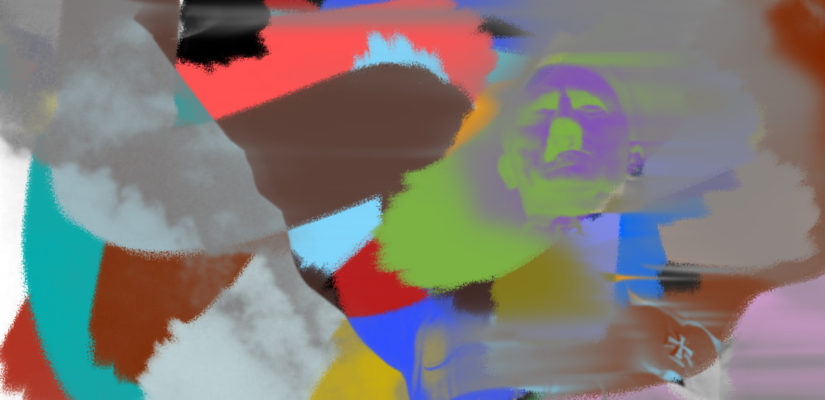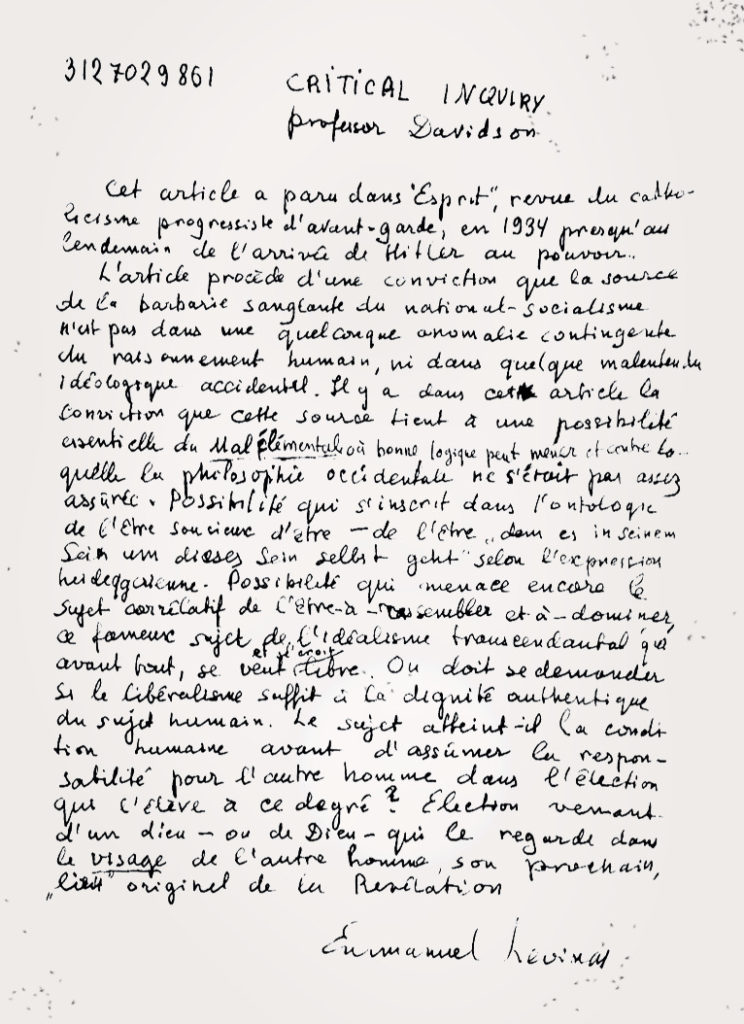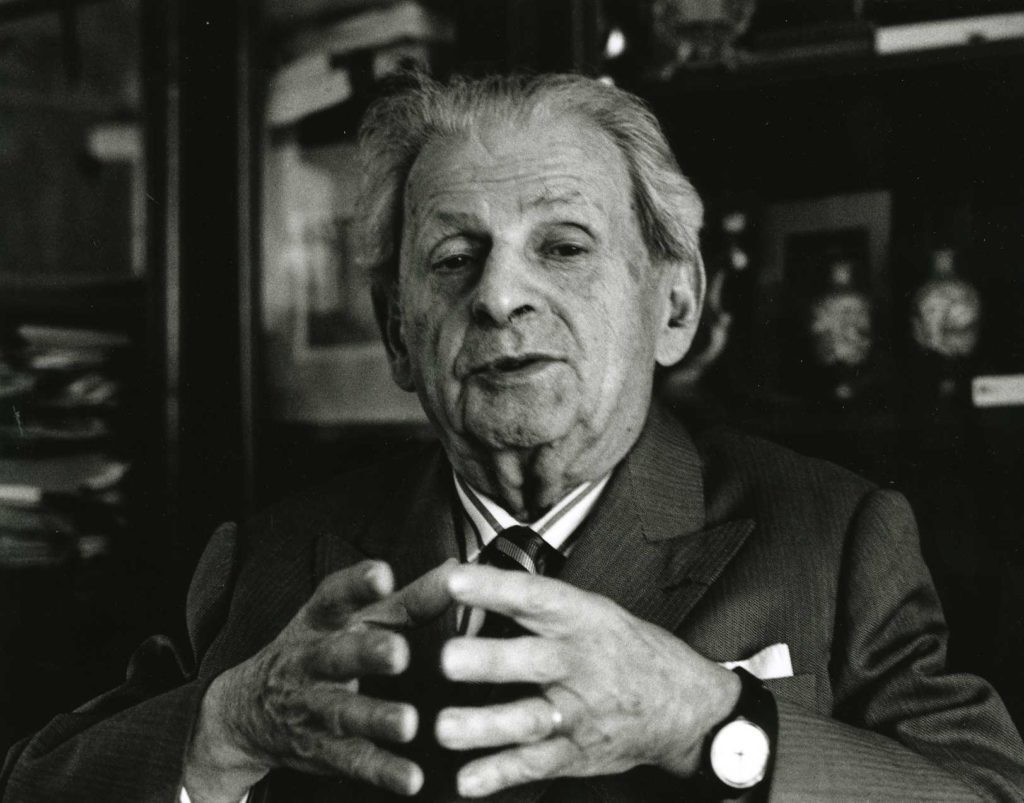
The Philosophy of Hitlerism | (dot)philosophy

(dot)philosophy | A space by GIACOMO MARIA ARRIGO
In 1934, the young French philosopher Emmanuel Lévinas wrote an important essay on the philosophical Weltanschauung of the Nazi party entitled “Quelques réflexions sur la philosophie de l’hitlérisme” (Reflections of the Philosophy of Hitlerism). Click here for the full article.
FROM GIORGIO AGAMBEN’S INTRODUCTORY ESSAY TO THE ITALIAN EDITION (Macerata: Quodlibet 1996):
«This text by Levinas is perhaps the only successful attempt of 20th century philosophy to come to terms with the decisive political event of the century: Nazism. […] Levinas immediately realized the novelty of Hitlerism compared to the philosophical-political tradition of the West. While Judaeo-Christian thought and liberal thought – he argues lucidly – aim at liberating the spirit from the constraints of the sensitive and historical-social situation to which man is consigned from time to time, distinguishing an eternal realm of reason from that of the body, Hitler’s philosophy is based instead on an unreserved assumption of the historical and material situation, considered as an inseparable cohesion of spirit and body, natural heritage and cultural heritage».

«The following article appeared in Esprit, a journal representing a progressive, avant-garde Catholicism, in 1934 shortly after Hitler came to power. The article stems from the conviction that the source of the bloody barbarism of National Socialism lies not in some contingent anomaly within human reasoning, nor in some accidental ideological misunderstanding. This article expresses the conviction that this source stems from the essential possibility of elemental Evil into which we can be led by logic and against which Western philosophy had not sufficiently insured itself. This possibility is inscribed within the ontology of a being concerned with being [de l’être soucieux d’être]—a being, to use the Heideggerian expression, “dem es in seinem Sein um dieses Sein selbst geht.” Such a possibility still threatens the subject correlative with
being as gathering together and as dominating [l’être-à-reassembler et à-dominer], that famous subject of transcendental idealism that before all else wishes to be free and thinks itself free. We must ask ourselves if liberalism is all we need to achieve an authentic dignity for the human subject. Does the subject arrive at the human condition prior to assuming responsibility for the other man in the act of election that raises him up to this height? This election comes from a god—or God—who beholds him in the face of the other man, his neighbor, the original “site” of the Revelation».
— Emmanuel Lévinas, 28 March 1990

FROM LÉVINAS’ ARTICLE:
«The biological, with the notion of inevitability it entails, becomes more than an objectof spiritual life. It becomes its heart. The mysterious urgings of the blood, the appeals of heredity and the past for which the body serves as an enigmatic vehicle, lose the character of being problems that are subject to a solution put forward by a sovereignly free Self. Not only does the Self bring in the unknown elements of these problems in order to resolve them; the Self is also constituted by these elements. Man’s essence no longer lies in freedom, but in a kind of bondage [enchainement]. To be truly oneself does not mean taking flight once more above contingent events that always remain foreign to the Self’s freedom; on the contrary, it means becoming aware of the ineluctable original chain that is unique to our bodies, and above all accepting this chaining».